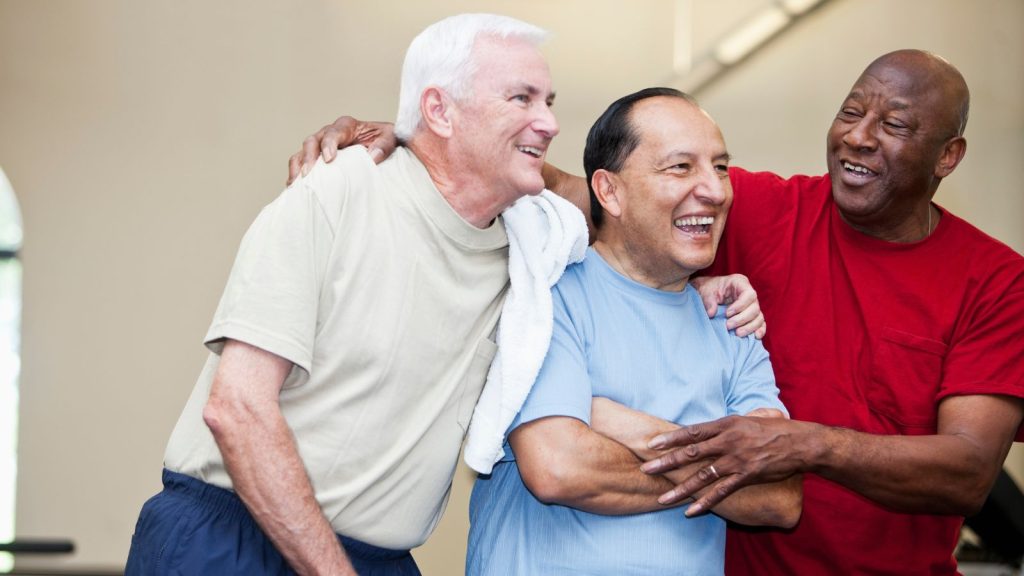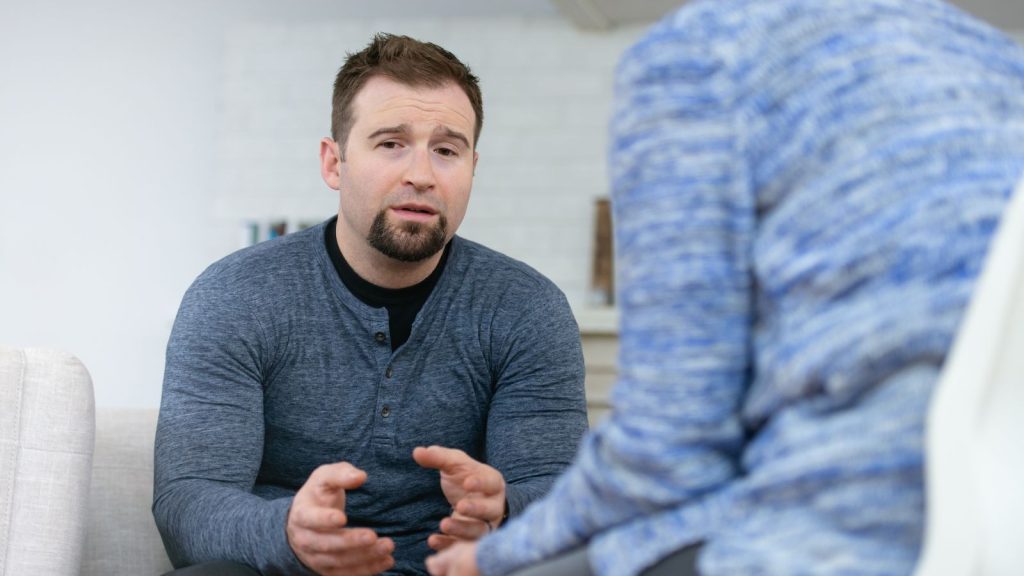Men’s Health Week (9-15 June) is a vital opportunity to shine a light on all aspects of wellbeing for men.

While there is, rightly, a huge focus on physical health, awareness of your mental health matters just as much. Just as you wouldn’t ignore a persistent cough or a back injury, it’s important to pay attention to ongoing stress, low mood, or anxiety.
To mark Men’s Health Week, we’re exploring why it’s so important for men in Northern Ireland to get support for mental health issues.
Note: This article mentions suicide.
One in five adults in Northern Ireland are experiencing signs of mental ill-health. However, men are statistically much less likely than women to ask for help with mental health concerns1.
As a result, men in Northern Ireland are disproportionately affected by suicide. The most recent figures indicate that in 2021, 74% of total suicide deaths were males1.
Many may grow up believing they have to “just get on with it” or “keep the head down”. This cultural mind-set, while often rooted in resilience, can create stigma around mental health. It also becomes a barrier to getting the support that’s needed. This can even have a knock-on effect on your physical health.

Mental and physical health often go hand-in-hand. People experiencing mental health issues are more likely to develop physical health conditions, and vice versa2.
That’s not to mention the physical side effects of mental health problems themselves. Anxiety might lead to nausea, headaches, or muscle pain, for example3.
Likewise though, your mental wellbeing will benefit when you look after your physical health – whether through exercise or eating well. You might be surprised by how much a short 10 minute walk can boost your mood.
Looking after your mental health doesn’t necessarily mean seeing a professional straight away (although that’s always a good option). Sometimes, it starts with small changes:

Whether you’re 18 or 80, a farmer, a builder, a teacher, or a stay-at-home dad, no one is immune to life’s challenges. Everyone has mental health. Looking after it and knowing when to ask for support helps us to lead better and fuller lives.